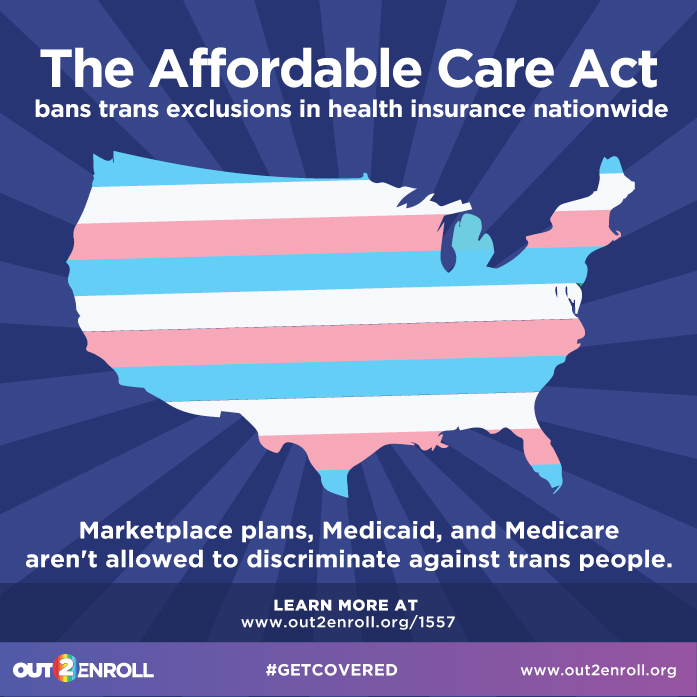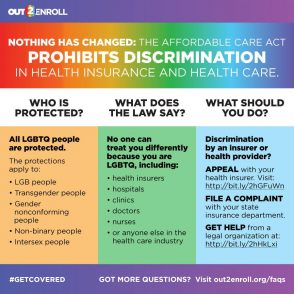Have you heard? The Affordable Care Act prohibits discrimination against LGBT people in most types of health insurance and in accessing health care in EVERY state. Here are a few key things to know:
- All LGBTQ people are protected from discrimination in health insurance coverage and health care. The Affordable Care Act protects LGB people as well as transgender, gender nonconforming, non-binary, and intersex individuals.
- Insurers should not have categorical transgender exclusions in most types of health insurance. There is no explicit requirement that insurers cover transition-related care – so there is no specific list of services that must be covered. However, if a plan covers a certain treatment for a cisgender person, it cannot be denied to a transgender person based on their gender identity.
- LGBTQ people are protected from discrimination when accessing health care. Most health providers – including hospitals, nursing facilities, community health centers, state Medicaid agencies, and state public health agencies (among others) – are prohibited from discriminating against LGBTQ people. Health care providers can’t discriminate because of who you are in a relationship with. And hospitals, for example, must place a transgender or gender nonconforming individual in a room or ward according to their gender identity. You should never face harassment, such as a provider intentionally refusing to use a transgender person’s correct name and pronoun.
- If you experience any form of discrimination, find a trans exclusion in your plan, or if your coverage is denied, you should contact a legal organization at http://bit.ly/2hHkLxi and let us know at info@out2enroll.org. It doesn’t matter what type of plan or provider. It can be frustrating to file a complaint, but this is especially important given the lack of clarity about what must be covered.
Other resources:

